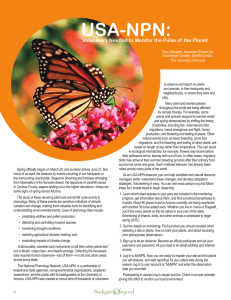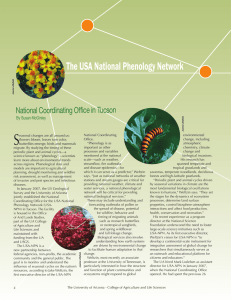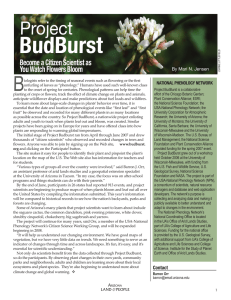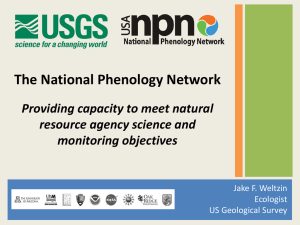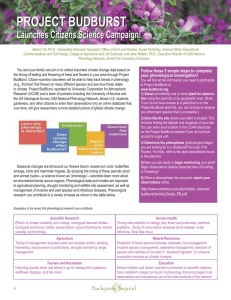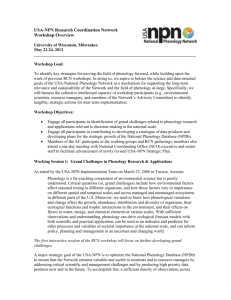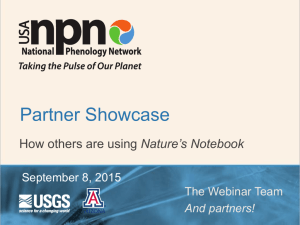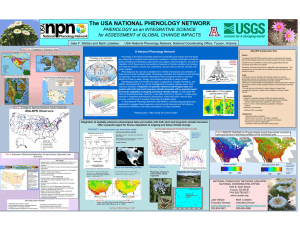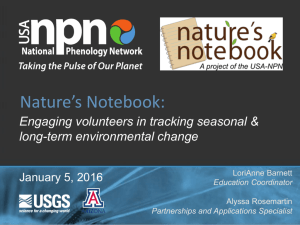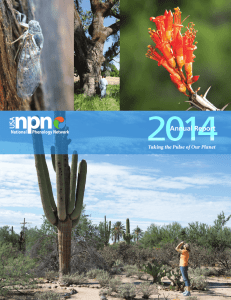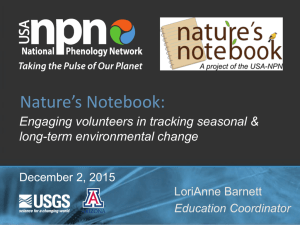QsFromSWES310_2012
advertisement
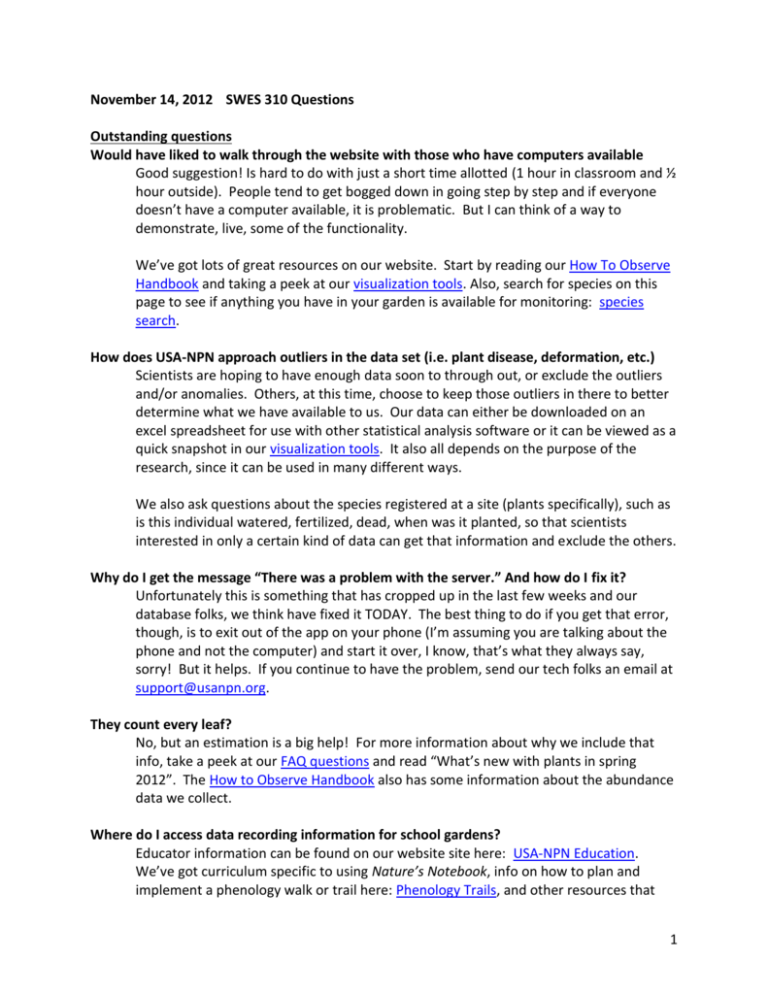
November 14, 2012 SWES 310 Questions Outstanding questions Would have liked to walk through the website with those who have computers available Good suggestion! Is hard to do with just a short time allotted (1 hour in classroom and ½ hour outside). People tend to get bogged down in going step by step and if everyone doesn’t have a computer available, it is problematic. But I can think of a way to demonstrate, live, some of the functionality. We’ve got lots of great resources on our website. Start by reading our How To Observe Handbook and taking a peek at our visualization tools. Also, search for species on this page to see if anything you have in your garden is available for monitoring: species search. How does USA-NPN approach outliers in the data set (i.e. plant disease, deformation, etc.) Scientists are hoping to have enough data soon to through out, or exclude the outliers and/or anomalies. Others, at this time, choose to keep those outliers in there to better determine what we have available to us. Our data can either be downloaded on an excel spreadsheet for use with other statistical analysis software or it can be viewed as a quick snapshot in our visualization tools. It also all depends on the purpose of the research, since it can be used in many different ways. We also ask questions about the species registered at a site (plants specifically), such as is this individual watered, fertilized, dead, when was it planted, so that scientists interested in only a certain kind of data can get that information and exclude the others. Why do I get the message “There was a problem with the server.” And how do I fix it? Unfortunately this is something that has cropped up in the last few weeks and our database folks, we think have fixed it TODAY. The best thing to do if you get that error, though, is to exit out of the app on your phone (I’m assuming you are talking about the phone and not the computer) and start it over, I know, that’s what they always say, sorry! But it helps. If you continue to have the problem, send our tech folks an email at support@usanpn.org. They count every leaf? No, but an estimation is a big help! For more information about why we include that info, take a peek at our FAQ questions and read “What’s new with plants in spring 2012”. The How to Observe Handbook also has some information about the abundance data we collect. Where do I access data recording information for school gardens? Educator information can be found on our website site here: USA-NPN Education. We’ve got curriculum specific to using Nature’s Notebook, info on how to plan and implement a phenology walk or trail here: Phenology Trails, and other resources that 1 have to do with teaching phenology in the classroom and beyond on the Educator’s Clearinghouse. A partner program for younger grades interested in phenological monitoring is Project BudBurst. Their website is http://neoninc.org/budburst/ Is honey mesquite native to Arizona? There are a few varieties of honey mesquite, some of which are native further east (Texas, New Mexico) but others are considered native here. For more information about native species and their taxa, visit our species profile page for honey mesquite and the USDA PLANTS Profile pages for western honey mesquite (the link to the USDA PLANTS page is also found at the bottom of each of our species profile pages. How might rain gardens respond to monsoon vs. winter rains? An excellent question that collecting data will help us to determine. Please feel free to share you data or interpretations with me! lorianne@usanpn.org. I’d be glad to highlight your questions and answers on the website! How USA-NPN will be used in the future Study bloom and fruit times of native plants and trees Use USA-NPN for agricultural research projects (we’ve had a few inquiries about the over the years so send me an email and I can be in touch with you as we add more specific tools for the ag community). Nature’s notebook for bird observations Phenology monitoring as a Natural Resource major Nature’s Notebook or Project BudBurst in the classroom/school garden Tucson Phenology Trail Start logging my plants – including herbs and vegetables The website 2
